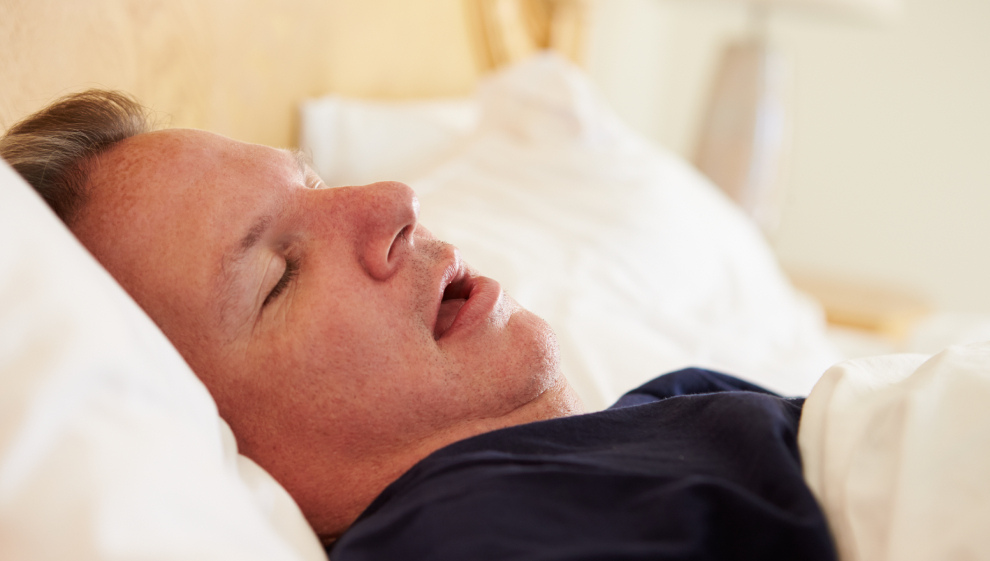How to manage snoring and sleep disorders | Causes, symptoms and treatments
- Overview
- How many people snore?
- What causes snoring?
- Are there things that will make snoring worse?
- What is obstructive sleep apnoea?
- How do I know if snoring is a serious problem?
- What can be done to help snoring?
- Anti-snoring devices
- What does a snoring assessment consist of?
- Snoring and relationships
- Snoring treatments
How many people snore?
More than you might think. Between the ages of 30 and 35, one fifth of men snore, whereas only 5% of women snore. The figures get much higher as we get older. By the age of 60, 60% of men snore and 40% of women snore.
What causes snoring?
Apart from weight, features such as neck size, lifestyle habits (smoking, alcohol) and the shape of the airway can all affect snoring patterns. Don’t forget that any point from the tip of the nose down to the windpipe can cause snoring if it's narrow enough.
I advise anyone to undergo airway endoscopy as part of a sleep study as looking at the airway may identify a more serious problem that could require surgery. Clinical studies have shown that in people who are severely overweight, a drastic reduction in weight does lead to improved breathing at night and a reduction in obstructive sleep apnoea.
Are there things that will make snoring worse?
Alcohol, extreme tiredness, sleeping on your back and smoking can all make snoring worse.
What is obstructive sleep apnoea?
There's a range of snoring, from the very mild, occasional snorer through to the most severe – the snorer with obstructive sleep apnoea (OSA). OSA occurs when breathing stops completely for 10 seconds or more when asleep. Most people with OSA do this more than once during a night’s sleep.
This usually means that the airway has completely collapsed and, until the brain starts waking up – no air moves. This can be a frightening experience for snorers' partners who may jostle their partners to help restart their breathing.
How do I know if snoring is a serious problem?

There are some obvious features of snoring that present problems such as a partner or family members complaining about the noise. This may be severe enough to cause couples to sleep in separate rooms. In addition to the stress this places on relationships, there are also health issues.
Snoring may not be severe enough to cause OSA but it can lead to excessive daytime sleepiness due to the poor quality of sleep this produces. This can be a particular problem for those whose job involves operating machinery or driving.
OSA sufferers have an increased risk of many health problems including heart attacks, strokes, headaches, sexual impotence and high blood pressure. Unfortunately, it can also lead to depression, impaired intellectual function and motor vehicle accidents.
What can be done to help snoring?
Taking steps like reducing alcohol intake, quitting smoking, and losing weight can prove to be beneficial. However, losing weight can be challenging for snorers who struggle with a lack of sleep and low energy levels. This often leads to overeating in an attempt to regain energy, making weight loss even more difficult.
There are many products on the market from chin straps to electric shock devices, all of which are designed to improve snoring. Some work and some don’t, and invariably one size doesn’t fit all. A certain amount of trial and error is involved in getting a contraption to work for you and this can be expensive (not to mention uncomfortable).
If alcohol reduction, stopping smoking and weight loss aren't enough, it's worthwhile getting a diagnosis from a specialist doctor as to:
- where the problem is
- how bad the problem is
- what can be done about it.
Anti-snoring devices
These devices are available in all different shapes and sizes. Additionally, what works for another person might not necessarily work for you. These devices include:
- Snoring nasal sprays
- Mouth guards
- Nose strips for snoring
- Chin straps
- Nasal dilators
- Wristbands
What does a snoring assessment consist of?

Initially you'll have a consultation with a medical consultant experienced in diagnosing and treating sleep disorders. They'll collate a history of the problem, along with any medical complaints that may be affecting it. You'll then be given a sleep disorders questionnaire to complete.
Following an examination, the consultant will discuss necessary investigations with you, before going through the results. The consultant will determine how bad (or not so bad) the problem is, what (if anything) needs to be done about it, and what does this involves.
Rather than trial and error, this system allows a much better assessment of what the problem is and how best to treat it.
Snoring and relationships
Snoring can have an impact on your relationship. Your partner snoring loudly, or you keeping your partner awake at night can quickly breed resentment between the two of you.
Whether it’s you or your partner who are directly affected, it’s important to remember that the individual cannot immediately control their snoring. There are however, a range of lifestyle factors that can affect the intensity of the snoring.
A transparent and compassionate discussion is the best way to address the subject. If you find you and your partner are struggling to work through the issue alone, consider seeking professional help from a therapist who can bring a unique perspective and offer compassionate guidance and advice.
Snoring treatments
The most important factor is identifying where the obstruction is occurring. To achieve this accurately, the consultant will measure a variety of factors when you're asleep naturally using a device known as a sleep apneograph.
Once they've found the site of the problem, it may be surgically correctable using a variety of surgical procedures including laser, cautery assisted palatal probes, radio frequency ablation, injection and palatal implants. These surgical techniques aim to widen the air passage and/or stiffen the walls to keep the air passage open.
If you'd like to find out more or book an appointment with Mr George Murty, Ear, Nose and Throat (ENT) Surgeon, at Nuffield Health Leicester Hospital, please call 0116 298 6742.
Last updated Thursday 12 October 2023
First published on Thursday 27 April 2023

